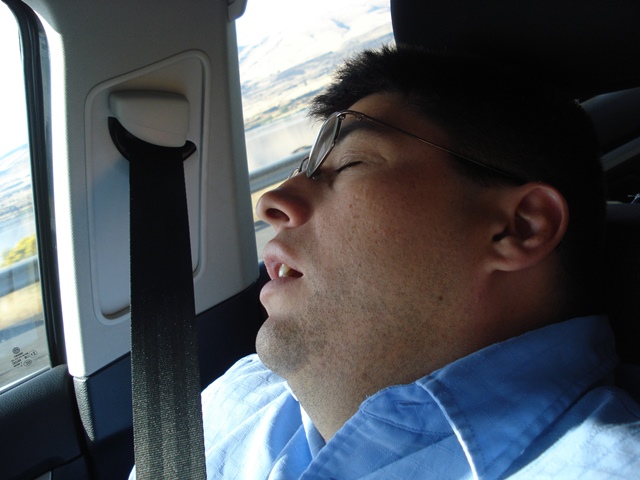
Leadership Skills
Sleep
Getting enough sleep can be difficult if you are trying to balance your work, family, and personal obligations. We often hear people saying that they are tired or did not get enough sleep. How much sleep is enough? For adults, most experts say 7-8 hours, but some people can function well with as few as 5 hours or up to 10 hours per night.
Our bodies need sleep to help heal internally and repair our systems. According to the Department of Health & Human Services, National Heart, Lung, and Blood Institute, some important benefits of sleep are:
- Improved ability to make decisions
- Improved ability to learn
- Better able to control emotions and reactions
- Increased coping abilities
- Better able to control weight
- Improved immune system
- Prone to fewer accidents
What Happens When You Lose Sleep?
If you only lose sleep for one night, you will likely be tired and maybe a little grumpy. If you miss two nights of sleep, your brain will start to have trouble concentrating--that means your attention will be shorter, and your might begin to make mistakes. After three nights of no sleep, you may begin to hallucinate, and you will not think clearly. A little sleep is better than no sleep, and you want to try to get through the sleep stages into the REM cycle.
REM Sleep Cycle
According to Web MD, there are rapid eye movement (REM) and non-REM cycles in our sleep. The ideal cycle is where we go from non-REM (stages 1-3 below) into the REM stage. It is during the non-REM cycles where our bodies repair.
- Stage 1: Eyes closed, but easy to wake up. May last 5-10 minutes.
- Stage 2: Light sleep. Lower body temperature and slower heart rate.
- Stage 3: Deep sleep, and harder to wake up.
- REM: About 90 minutes after falling asleep. Brain is action; you may dream. Increased heart rate and quicker breathing. First REM is about 10 minutes in length, and each one thereafter increases.
Get Better Sleep
If you have no trouble getting a good night's sleep, you are one of the lucky ones. If you are like most of us, you have occasional problems sleeping well. Take this sleep hygiene test from Psychology Today to receive some tips for a better night's sleep. Please review the summary, and you are not required to purchase the full report.
Here are some suggestions for getting better sleep:
- Regulate light and dark. Get sun or daylight exposure during the day (when you should be awake), and then transition to complete darkness before bed. That means no sleeping with the TV on and no reading electronics right before bed. Have a dark bedroom, and the darker the better. Do not turn on lights if you get up at night; use a flashlight instead.
- Develop a sleep schedule. Go to bed at the same time every night. Wake up at the same time every day. This will take some practice because you may not fall asleep when you want for the first few nights. You may wake up tired for the first few days, but get up anyway. Stick with it.
- Create a bedtime ritual. Do whatever calms you down and relaxes you. That might be have a cup of herbal tea, read a book, take a bath or shower, or meditate. Do something you enjoy, and do it habitually. This routine will tell your brain and body that it is getting time for sleep.
- Make your bedroom sleep friendly. Block out noises and lights. Keep the room cool because you will sleep better when it is cool. Do not watch TV or use electronic devices right before bed, and do not use them in the bedroom. Make sure that your sheets, blankets, mattress, and pillows are comfortable and not scratchy.
- Do not eat a big meal before bedtime. If you are hungry, have a small snack, but stay away from large portions. Your body digesting the food will make it difficult to sleep.
- Watch what you drink in the evening. Alcohol may make you fall asleep quickly, but it will interfere with your sleep pattern. Caffeinated products keep some people from falling asleep. Too much liquid will cause you to get up during the night.
- Focus on positive thoughts. When in bed, do not review your work day or make plans for the next day. (Those should be done before the bedtime ritual begins.) Take slow deep breaths and think of something positive such as a relaxing location. If that alone doesn't cause you to fall asleep, try tensing and relaxing your muscles, moving slowly from your toes upwards.

